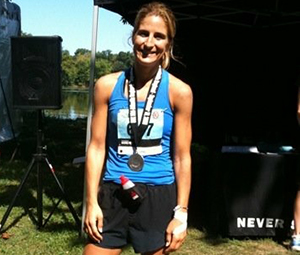Nutrition and running: Fuel for the course
Nutrition
It’s pretty obvious that Savannah loves to run. Almost any given weekend in our area you can find a 5K, 10K, half-marathon or marathon.
One of the area’s most popular running events is quickly approaching – the Critz Tybee Run Fest. If you are a runner, you are most likely already prepping for these days.
In addition to your training, it’s also important to pay attention to your diet – and not just before the race.

St. Joseph’s Hospital Clinical Dietitian Andrea Manley is an ultra marathoner and stresses the importance of nutrition and running.
“Choosing the appropriate balance of carbohydrate, protein, fat and fluid can take an athlete from second place to first or just improve a beginning runner’s time by minutes,” Manley said. “Pre-race and post-race day nutrition is just as important as pre-race day training.”
Here are some nutritional advice and meal suggestions from Manley:
One week before your race
Aim for a modest increase in carbohydrates, with 50 to 70 percent of total energy intake coming from carbohydrates, Manley recommends. A mixed diet for the first three days (50 percent carbs) followed by three days of a high-carbohydrate diet (70 percent) increases time to exhaustion (endurance capacity) on average by about 20 percent and reduces the time required to complete a set task by two to three percent, Manley says.
One day before the race
Eliminate foods that pose the risk of gastrointestinal distress is important, Manley said. She recommends eliminating high fiber foods and foods the case gas, such as legumes, broccoli, spicy foods and lactose.
“Stick with low residue foods – that means no seeds, nuts or raw fruits or vegetables,” Manley said. “Eliminate alcohol and reduce caffeine as these can cause dehydration.”
Eat a small, early, carbohydrate heavy dinner the night before the race. Manley says the meal should be no more than 600 to 800 calories.
“If eating properly the week before, your muscles will be adequately fueled,” she said.

Race morning
Manley recommends eating a fairly large “last” meal three to five hours before the race, which will help after an overnight fast when the liver is almost depleted of oxygen. A carbohydrate-rich meal containing 140 to 330 grams of carbs three to five hours before any exercise increases muscle glycogen levels and improves exercise performance, Manley said.
“Aim to have breakfast three hours before the start of your race,” Manley said. “Too early? Eat and go back to bed.”
Examples of a meal include bread and jam or honey, cereals, bananas, canned fruit and fruit juice. Manley says it’s important not to over or under eat and recommends packing snacks like sports bars, pretzels, crackers, nuts and yogurt for easily accessible healthy carbohydrate-rich snacks.
She also says including small amounts of protein in your pre-exercise meal will help build and repair muscle tissue post-race. If you have pre-competition jitters, Manley suggest a liquid meal may be a better choice than whole foods.
Manley provides three examples of pre-race meals:
- Peanut butter and honey on toast plus an instant breakfast drink.
- Fruit and yogurt smoothie with low-fat granola
- Oatmeal with brown sugar and almonds with skim milk and a banana
Eating after your race
Manley says eating after a race is an important factor that a lot of runners ignore. Recovery nutrition restores fluid and electrolytes lost in sweat, replaces muscle fuel utilized during the race, and provides protein to aid in the repair of damaged muscle tissue and to stimulate development of new tissue.
Athletes should begin nutrition recovery with a snack or meal within 15 to 60 minutes following a race, Manley said. Here are three examples she provides:
- Smoothie made with yogurt and frozen berries
- Sports drink (carbohydrate, electrolyte, fluid) plus sports bar (carbohydrate, protein)
- Graham crackers with peanut butter with low-fat chocolate milk and a banana
“Experiment with foods and drinks in practice and lower level competitions to determine the best timing and your tolerance for pre-exercise foods,” Manley said. “Figuring out what works best for you will boost confidence in eating before exercise. Good luck to all runners.”